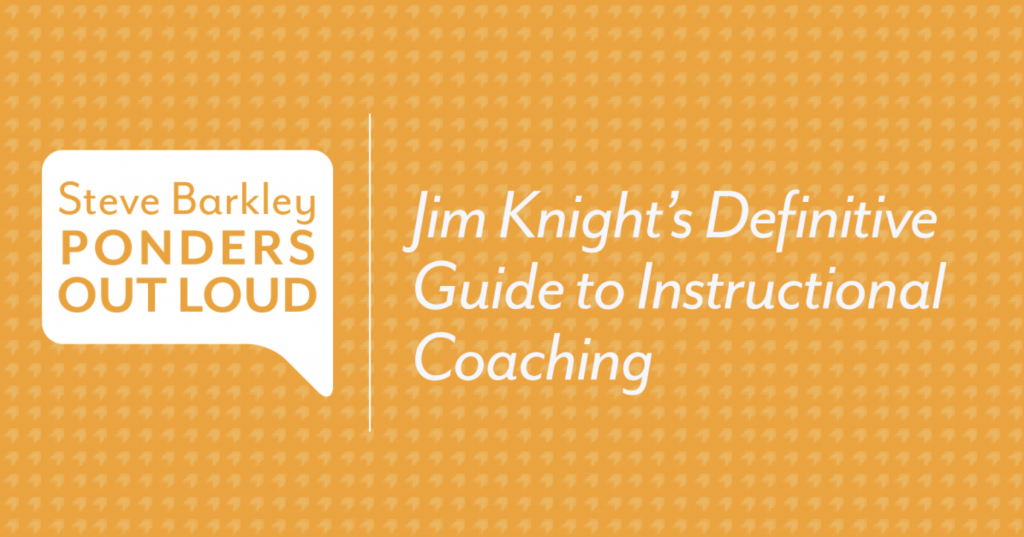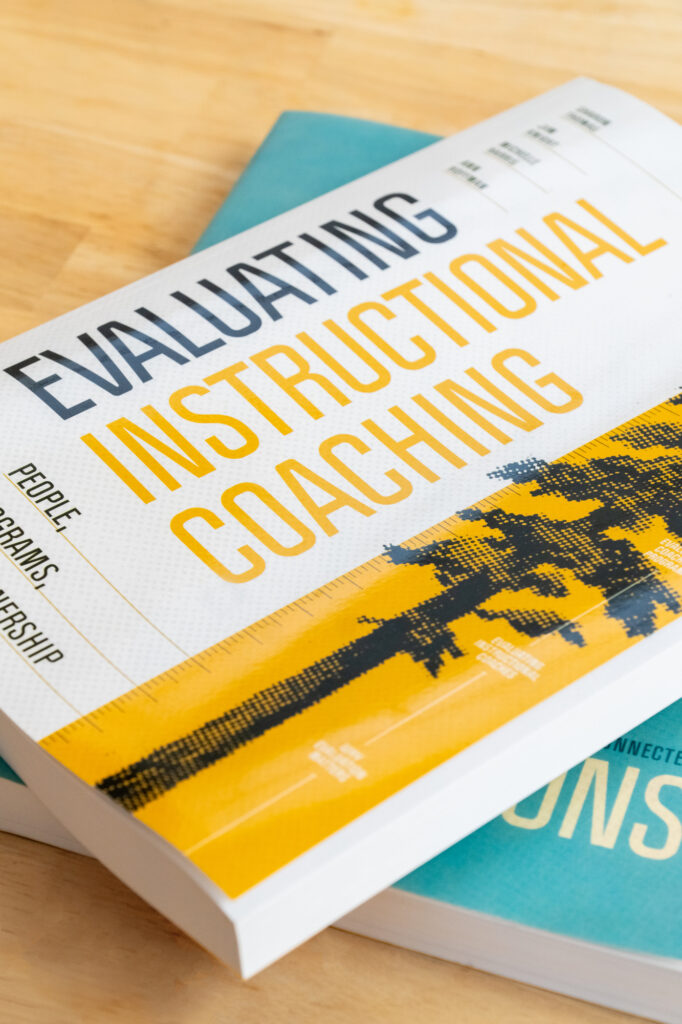Jim Knight recently appeared on the Steve Barkley Ponders Out Loud podcast to discuss his new book, The Definitive Guide to Instructional Coaching: Seven Factors for Success. Jim and Steve discuss their history together, their experiences in coaching over the last two decades, and eventually their thoughts on coaching during COVID as they work their way through the three sections of the book: Who Coaches Are, The Work Coaches Do, and Where Coaches Work.

Who Coaches Are
Effective instructional coaches treat teachers as professionals capable of making decisions for themselves and people who will flourish when they’re engaged in what Jim calls life-giving conversations. Imposing practices on teachers without partnering with them to determine the best course of action is a dehumanizing act, and it minimizes the effect of the potential for professional growth. Instead, coaches examine who they are and how their actions affect the teacher, their students, and the coaching process itself.
An instructional coaches keep in mind four important questions about who they are:
- What are my beliefs?
- How do I communicate?
- How do I lead myself?
- How do I lead others?
The Work Coaches Do
Every coaching situation is unique and requires different tools and strategies, but using a clear coaching process guides the work of an instructional coach. Informed by their 20+ years of research, Jim Knight and ICG developed the Impact Cycle:

THE IMPACT CYCLE
- Identify: the teacher, in partnership with the coach, identifies a clear picture of reality, a goal, and a strategy to implement to hit the goal
- Learn: The coach prepares a teacher to implement a strategy, usually by describing a strategy with a checklist (today’s topic) and providing some kind of model demonstrating how to use the strategy (this can happen in at least six ways)
- Improve: Coach and teacher make adaptations until the teacher’s goal is met.
Where Coaches Work
Administrators and educational leaders need to have an understanding of what instructional coaching entails. Coaches are often given a variety of other school tasks because there is no role clarity between coaches and administrators. Successful instructional coaches spend most of their time partnering with teachers in a coaching process. Each additional task they are assigned in the school takes away time they could spend coaching.
Ultimately, psychological safety – creating a place where people feel open and comfortable sharing ideas and willing to be a little bit vulnerable – is crucial to set the stage for effective coaching. If communication between coaches, teachers, and administrators is clear about what instructional coaching is and the partnership approach is practiced, educators can all have a greater impact on the lives and learning of students.
Listen to the full podcast and feel free to share your thoughts here in comments section below.





























